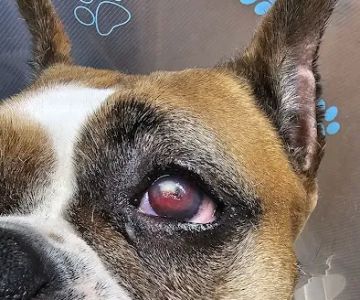- 1-Understanding-Basic-Nutrition-for-Pets
- 2-Importance-of-Regular-Veterinary-Checkups
- 3-Grooming-and-Hygiene-for-Optimal-Health
- 4-Exercise-and-Mental-Stimulation
- 5-Recognizing-Early-Signs-of-Illness
- 6-Creating-a-Safe-and-Comfortable-Home-Environment
- 7-Real-Life-Stories-Showcasing-Effective-Pet-Care
- 8-Trusted-Resources-and-Products-for-Pet-Care
1. Understanding Basic Nutrition for Pets
Proper nutrition is the cornerstone of good pet health, and veterinarians consistently emphasize its importance. Feeding your pet a balanced diet tailored to their species, age, and health needs helps maintain a strong immune system and prevents obesity-related illnesses. For instance, dogs require diets rich in protein and essential fatty acids, while cats need taurine and specific vitamins unique to their metabolism.
Choosing high-quality commercial pet foods or consulting with your vet about homemade diets ensures your pet receives necessary nutrients. Hidden Brook Veterinary highlights how adjusting nutrition based on life stages — such as puppyhood, adulthood, and senior years — supports optimal health throughout your pet’s lifetime.
2. Importance of Regular Veterinary Checkups
Routine veterinary visits are vital to catch potential health issues early and keep vaccinations up to date. Veterinarians recommend at least one annual exam for healthy adult pets, with more frequent visits for seniors or those with chronic conditions. These checkups include physical exams, dental screenings, and preventative treatments like flea and tick control.
During visits, vets can tailor advice to your pet’s unique needs and monitor subtle changes that owners might miss. A client of Hidden Brook Veterinary shared how annual wellness visits helped detect early kidney disease in her cat, allowing for timely intervention and improved quality of life.
3. Grooming and Hygiene for Optimal Health
Beyond nutrition and veterinary care, maintaining grooming and hygiene is crucial. Regular brushing removes loose fur and reduces shedding while preventing matting that can cause skin problems. Bathing schedules vary by pet type and lifestyle but keeping your pet clean helps avoid infections.
Dental care is another essential aspect often overlooked; veterinarians advise routine teeth brushing or dental chews to prevent periodontal disease, which can impact overall health. Grooming sessions also provide an opportunity to check for lumps, ticks, or skin irritations that need veterinary attention.
4. Exercise and Mental Stimulation
Physical activity and mental engagement are critical for a pet’s wellbeing. Exercise keeps pets fit, reduces behavioral issues, and provides socialization opportunities. Dogs generally benefit from daily walks or play sessions, while cats enjoy interactive toys that mimic hunting behavior.
Mental stimulation can include puzzle feeders, training sessions, or new environments to explore, which promote cognitive health and reduce boredom. Veterinarians note that pets lacking these outlets may develop anxiety or destructive habits, highlighting the need for enriching daily routines.
5. Recognizing Early Signs of Illness
Being alert to subtle changes in your pet’s behavior or appearance can make a difference in early diagnosis and treatment. Signs such as changes in appetite, energy level, grooming habits, or bathroom routines warrant veterinary attention. Veterinarians advise keeping a journal of such changes to provide accurate information during consultations.
An example from Hidden Brook Veterinary involved a dog owner who noticed slight limping and reduced playfulness. Prompt veterinary evaluation revealed early arthritis, allowing for effective management before symptoms worsened.
6. Creating a Safe and Comfortable Home Environment
Your pet’s environment greatly influences their health and happiness. Providing clean bedding, safe toys, and designated feeding areas contributes to their comfort. Removing toxic plants, securing harmful chemicals, and pet-proofing spaces prevents accidents.
Additionally, pets need quiet, cozy areas to rest and feel secure. Especially for anxious or older pets, creating such environments improves mental wellbeing. Hidden Brook Veterinary often advises clients on environmental enrichment tailored to individual pet needs.
7. Real-Life Stories Showcasing Effective Pet Care
Real experiences often illuminate the impact of essential pet care tips. One client shared how switching to a veterinarian-recommended diet and routine grooming improved her senior dog’s coat and energy levels dramatically. Another recounted how early detection of diabetes during a regular vet visit prevented severe complications in her cat.
These stories emphasize that consistent application of expert advice leads to longer, happier lives for pets. They also build trust in professional veterinary guidance as a cornerstone of pet ownership.
8. Trusted Resources and Products for Pet Care
Finding reliable sources for pet care products and services is essential. Hidden Brook Veterinary offers expertly selected items such as nutrition supplements, grooming tools, and preventive health products tailored to your pet’s needs. Their professional guidance ensures you invest in safe, effective options that support long-term wellbeing.
Incorporating trusted resources into your pet care routine, combined with veterinary advice, creates a comprehensive approach to health that benefits both pet and owner. When you want to provide the best care possible, relying on experienced veterinarians and quality products is the way forward.











